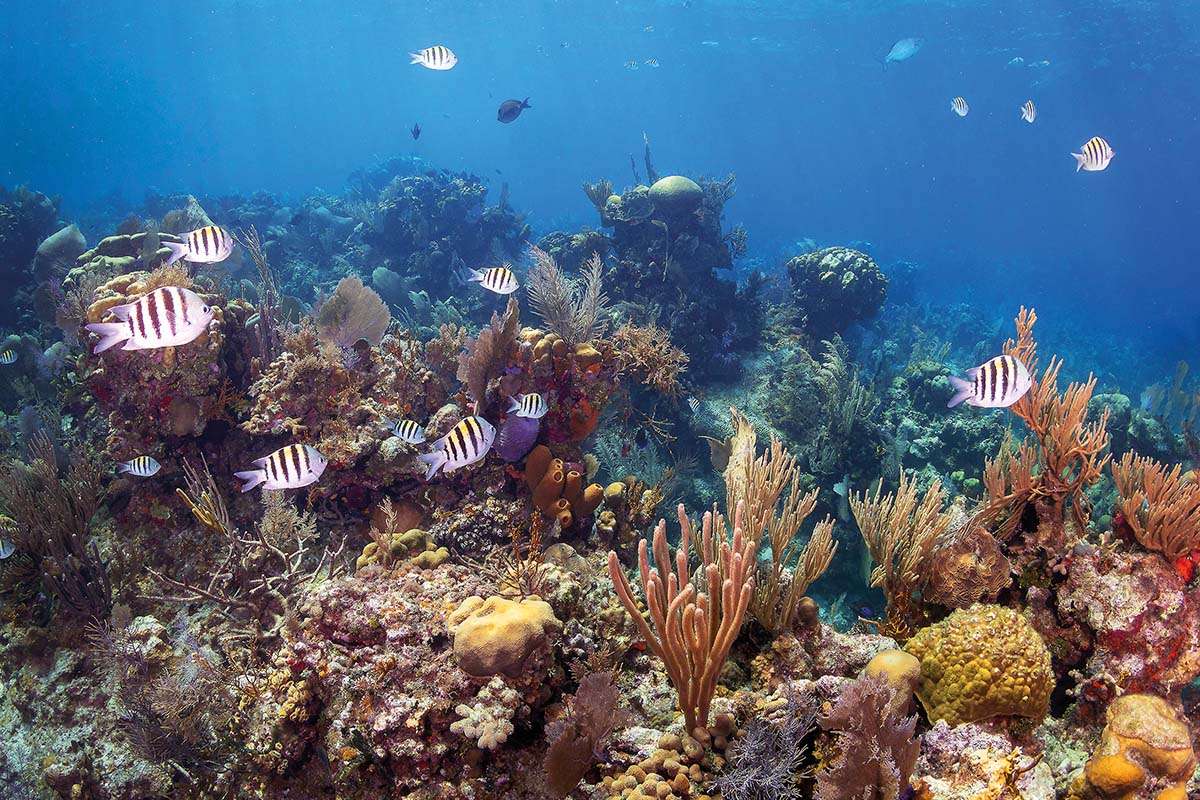
Belize is poised to refinance more than US $500m in foreign debt, with a commitment to invest in marine conservation as part of a radical scheme called Blue Bonds.
The government of Belize is working with the US-based The Nature Conservancy to restructure its crippling foreign debt, which is running at more than 133 per cent of its annual GDP and is unsustainable, according to the International Monetary Fund. A key part of the proposal, which more than 50 per cent of the foreign bondholders have agreed to support, involves the government spending a further $23.4 million on a marine conservation trust to help protect the world’s second-largest barrier reef.
The buy-back offer needs 75 per cent of the bondholders to sign up – they have until mid-October to agree.
‘It is a good solution,’ Carlos de Sousa, a strategist at investment firm Vontobel, which holds roughly 10 per cent of the debt, told Reuters news agency. ‘The recovery value could have been higher but it’s okay … It is also positive from a broader market perspective that sovereigns are finding creative ways to solve these issues.’
The bondholders will receive 55 per cent of the amount that they were owed. It is the second time that Belize has been forced to refinance its foreign debts. A similar scheme of Blue Bond refinancing was successfully used by the Republic of Seychelles in 2018. The Nature Conservancy Blue Bonds scheme uses private capital to refinance public debt for at-risk sovereign countries, such as Belize and Seychelles, which currently can’t afford to keep paying interest on their growing foreign debts.
The Nature Conservancy helps to arrange alternative funding as long as the recipient country agrees to accelerate their marine conservation programmes to preserve coral reefs and fish stocks. Besides struggling with mounting foreign debt, Belize has been hit by a collapse in tourist incomes due to the global pandemic and ever-increasing costs from the impacts of climate change.
Belize Prime Minister John Briceño, in a televised address to the nation, said the conservation measures agreed will dramatically enhance the preservation of their reefs which have been under threat from overfishing and overdevelopment.
‘But let me be clear, in principle, the agreement that the government has hammered out with the bondholders’ committee does not guarantee that our proposal will ultimately succeed. While the committee represents close to 50 per cent of bondholders, the offer will require 75 per cent support in order to close’, Briceño said.
To find out more about Blue Bonds or to donate, go to The Nature Conservancy website – nature.org.


